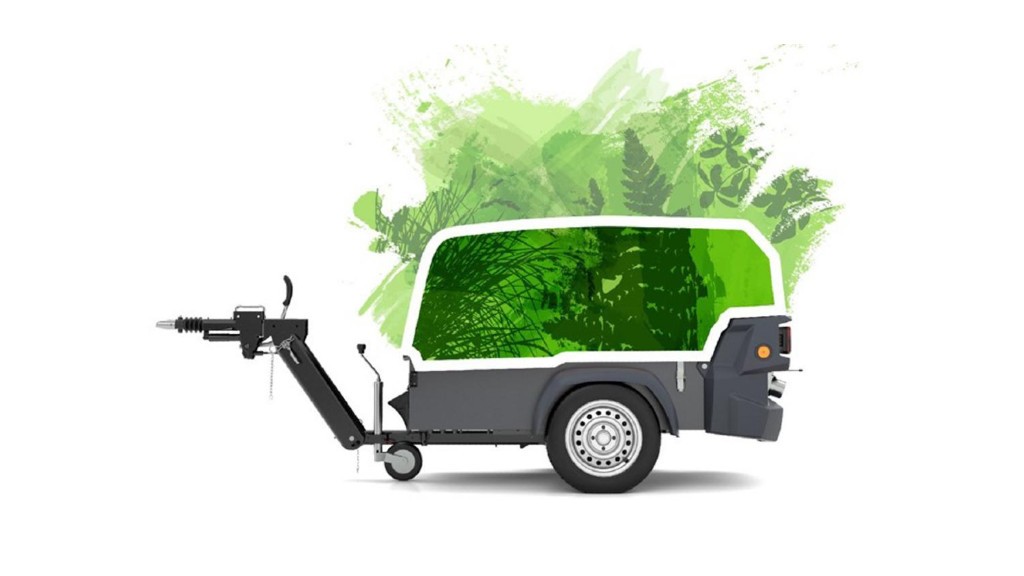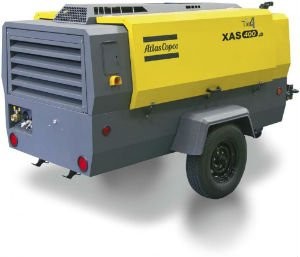Why you should switch from diesel portable compressors to zero-emission electric

Clean, green, sustainable
Sustainability is not a trend: it is a driver. All industries play an important role in cutting carbon emissions and in becoming environmentally and socially responsible. Switching to zero emission electric compressors will help businesses achieve sustainability goals by transitioning away from fossil-fuel dependency and committing to a cleaner, greener future.
Silent
Sustainability is more than just cutting CO2 output. Cities want to ban pollution – but noise is also a pollutant. Even the latest diesel engines are noisy, whereas electric compressors are extremely quiet – the same level as a conversation. They will remove noise distraction, enhancing both productivity and noise safety.
The versatility of electric compressors
The combination of zero emissions and almost zero noise means compressors can work indoors. The lack of moving parts (and their insulation from the elements) compared to an ICE compressor means they can work in extreme conditions of temperature and dust with total protection from the elements.
Consumer demand
Carbon reductions will become a more important differentiator as more and more companies publicly commit to more ambitious targets. The industry is now waking up to the fact that compressors are perfect to go electric. It is likely that ambitions to go green will accelerate rather than slow down – not just out of necessity, but because the people demand it.
Innovation
Innovation is always happening. Atlas Copco's latest Stage V-compliant diesel portable compressors, which perform far better and are far cleaner than compressors of a decade ago. Add in biofuels such as HVO and CO2 emissions shrink by over 90 percent. Turning to an electric compressor is merely a natural evolution in aiming for innovation and staying ahead of the competitive curve by driving innovation.
Maintenance
Electric compressors have far fewer parts than their diesel alternative. This means less to go wrong and maintain. Service intervals are four times longer for diesel compressors – from 500 hours – compared to 2,000 for electric compressors.
User friendly
The lack of a relatively heavy combustion engine or a heavy battery pack offers several convenience advantages. Plug-in electric compressors are far lighter and have a 40 percent smaller footprint than their equivalents, making them easier to tow and move. Atlas Copco's E-Air compressor range is also equipped with PACE (pressure adjusted through cognitive electronics) technology, an electronic pressure regulation system which locks in the ideal combination for the simplest usage.
Reliable
The majority of urban sites have access to the electrical grid and even those that don't use gensets. Electric machines also provide oil-free air in environments where even the slightest contamination would ruin the product, such as pharmaceutical or electronic component manufacturing.
Efficient
The Atlas Copco electric motors work at more than 90 percent efficiency, leaving diesel engines' 35 percent efficiency in the dust. For sites that use gensets, they are often working at very low levels of capacity. Connecting our electric compressors often improves the emission performance of gensets, and will also assist European businesses in the industrial sector to achieve the EU's energy efficiency standards.
Cost-effective
Over the course of their lives, the total cost of ownership for an electric compressor is cut considerably in comparison to diesel-run variations. Atlas Copco's E-Air H185 compressor working at 75 percent load will, for example, cost €20,000 less to run over the course of its life than a comparable ICE-powered unit – cutting 41,400 kg of CO2 in the process.



